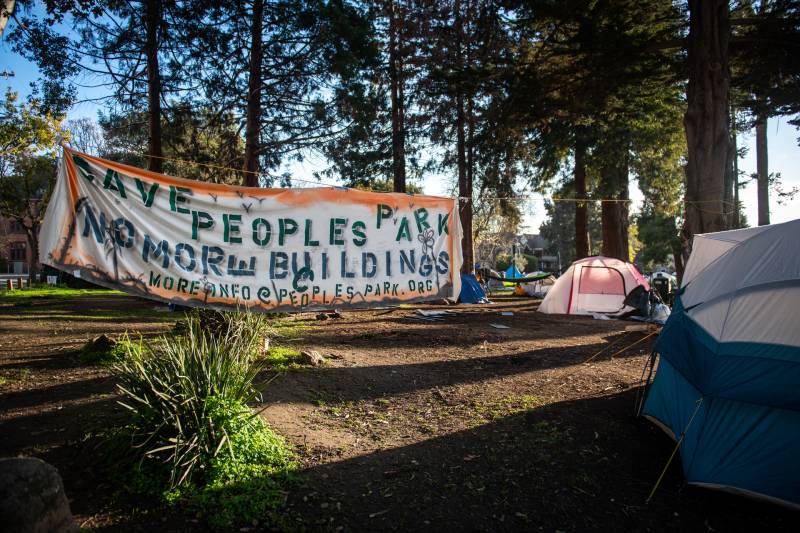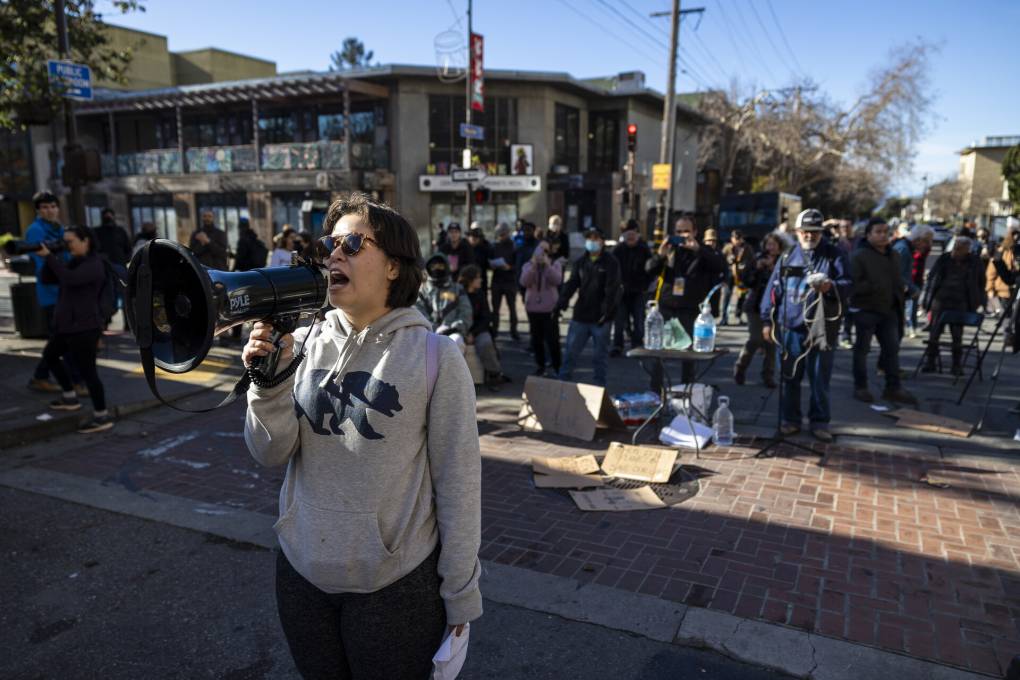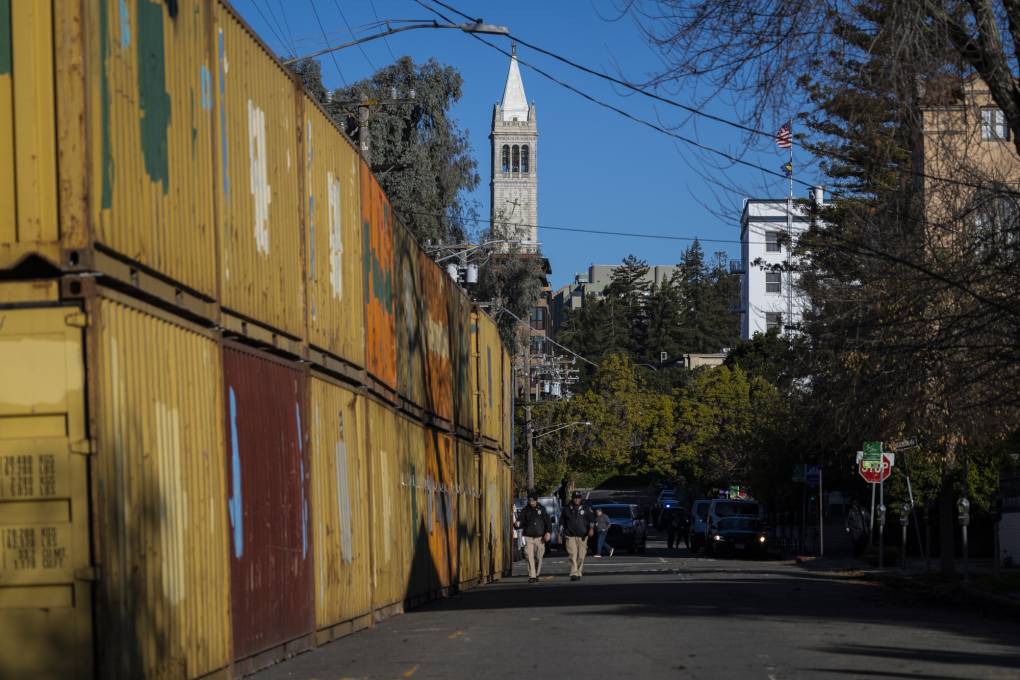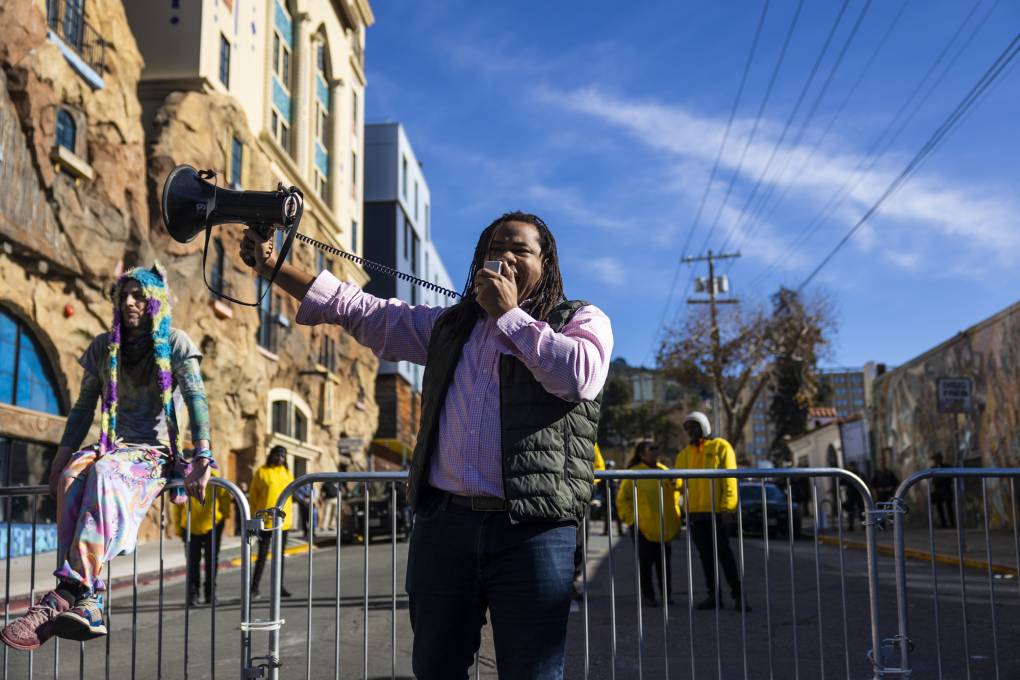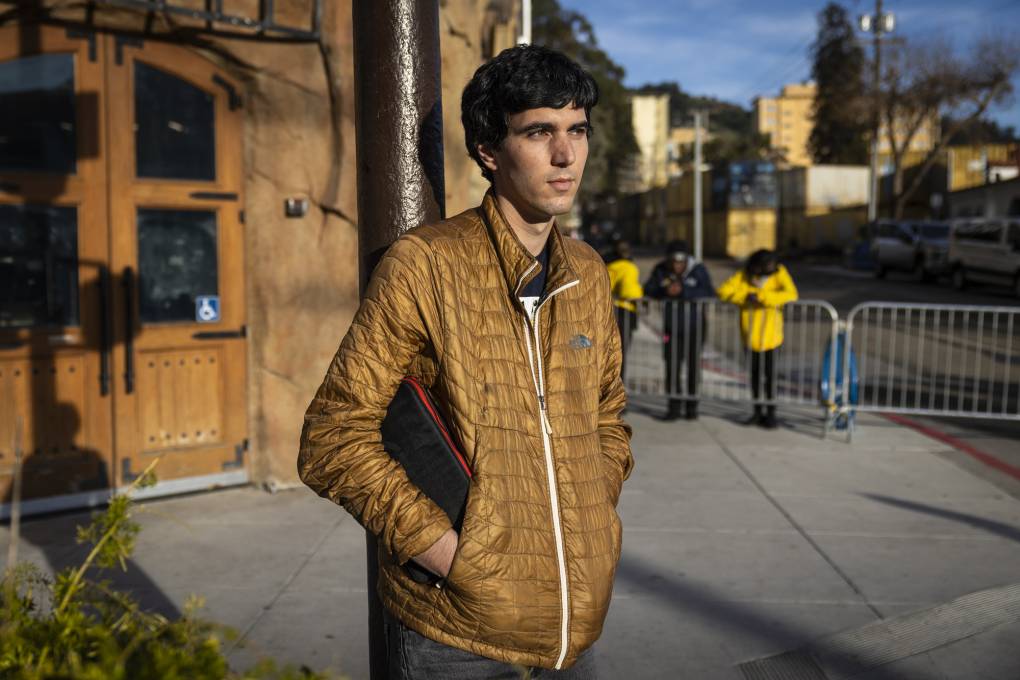This case, over the planned development of People’s Park, stems from a 2021 lawsuit brought by Make UC A Good Neighbor and The People’s Park Historic District Advocacy Group against UC Berkeley’s heavily contested Long Range Development Plan, which aims to add nearly 12,000 new student beds and 8 million square feet of new classrooms, research labs, libraries and other amenities.
The most controversial development in the plan is the proposal to build housing on People’s Park, including a dormitory for students and nonprofit-run apartments for unhoused and low-income people. Many who oppose the project want, instead, to preserve the park and its history as a site for political activism in the 1960s and 1970s.
The suit argues that UC Berkeley didn’t adequately consider alternative sites for all of the new structures in the expansion plan, including the People’s Park housing development, and didn’t properly analyze how noise from students on the newly expanded campus would impact neighbors and city residents.
Though a new state law was passed to clear the way for housing at the park following the original filing of the lawsuit, it is narrowly tailored to this project and to others like it. Legal experts say the court’s decision, though, may still have wide-ranging implications for the California Environmental Quality Act (CEQA) and its power over future housing projects across the state.
Under CEQA, noise is considered a form of pollution but had previously been considered in cases regarding concert venues or industrial sites, for example. This suit is the first to argue that noise generated by future residents is a form of environmental pollution.
In February 2023, an appellate court agreed and ruled that UC Berkeley needed to go back to the drawing board to consider alternative sites for both the new housing at People’s Park and the housing being built elsewhere on campus and that it needed to assess the impact of potential noise from future residents on the surrounding neighborhood.
